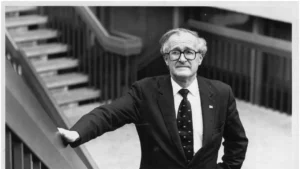Growing up I learned to optimise every resource, which instilled in me a fascination with institutional efficiency. At the CIS Liberty and Society Conference, Chris Berg’s session “Australia’s Classical Liberal Tradition to Techno-Optimism” wove together Locke’s natural rights, public-choice theory, and blockchain’s promise of decentralized sovereignty. His session spoke directly to my libertarian instincts, utilitarian ethics, and realist outlook. In this report, I will summarise Berg’s core argument, explain why it resonated so strongly, highlight my key takeaways, and reflect on how it has nudged my perspective toward a more nuanced libertarianism.
Chris Berg first traced Australia’s 19th-century liberal roots: Locke’s natural-rights philosophy, Smith’s advocacy of free trade, and Mill’s limited exceptions for protectionism. Second, he sketched the 20th-century ebb and flow of liberal ideas; progressive interventionism under Keynesianism, the rebirth of public-choice economics with Buchanan and Tullock, and the neoliberal turn under Friedman and Hayek. Finally, Berg mapped that lineage onto today’s “technologies of freedom,” arguing that blockchain, AI and cryptography extend centuries-old commitments to individual sovereignty, property rights and minimal coercion.
His session balanced between historical depth and forward-looking pragmatism, while his unfolding of Locke, Smith, and Mill reaffirmed my ingrained efficiency mindset, showing that the same principles guiding colonial trade debates are also in today’s economies.
Equally compelling were his views for “public-choice tech”: blockchain and AI as modern extensions of 20th-century scepticism toward state power. Framed through an offensive-realist lens, it demonstrated how decentralised tools can recalibrate strategic imbalances between individuals and states – an intellectual bridge between my utilitarian concern for overall welfare and my libertarian instinct for individual autonomy.
Berg’s historical coverage revealed that property rights and minimal state interference have long underpinned market efficiency. He further showed that cryptographic privacy tools can realise utilitarian goals by protecting individual welfare, even as they demand a careful balance between collective security and personal autonomy. Politically, his analysis demonstrated how blockchain and AI protocols redistribute strategic leverage, creating structural checks on authoritarian power and recalibrating state–citizen relations.
Before Berg’s session, I leaned heavily on utilitarian calculations: I believed it just to occasionally compromise individual autonomy to maximise aggregate welfare. However, I now see non-interference and decentralised ownership as vital safeguarding mechanisms that can both protect individual agency and amplify collective welfare. This subtle embrace of libertarian principles does not displace my utilitarian core; instead, it enriches it by recognising the instrumental value of individual sovereignty.






